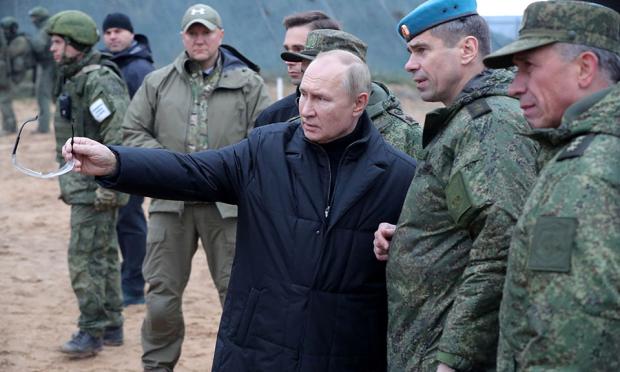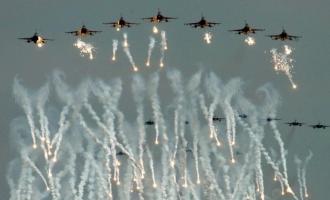Putin's Russia is approaching a crushing victory. Europe's foundations are shaking", is the headline of an article in the latest edition of The Telegraph.
The expert who signs it is sure that the initiative on the front is passing to the Russian army.
"Now it is the turn of the Ukrainians to deepen, and try to hold on to what they have," he writes.
At the same time, speaking about the upcoming trench warfare, the British expert, using the example of World War I, writes that this war is won by those who put more forces into the battle.
"The First World War finally ended partly because the Allies had more manpower. This time, Russia, which has a population three and four times larger than Ukraine, and certainly has the demographic advantage.
Russia has rapidly increased its production of weapons and ammunition and may now have an advantage in terms of drones, which is like the modern equivalent of barbed wire and machine guns in a parable of the British-French advantage in World War I," he adds.
Moreover, even if Trump does not win the US election, Republicans will not allow Biden to help Kiev to the required extent next year.
Americans now see this as a similar situation to that of 1950, when Republicans opposed President Truman's greater military action in Korea.
Describing Putin's visits to the Middle East, the British expert calls them frightening and fears that all that is happening could be a sign of a deal with Russia, which would be a "disaster on the level of the Suez crisis (1957) for Western democracies" (presumably, we are talking about the events of 1957, when Egypt nationalised the Suez Canal)."
Therefore, the British newspaper calls for options to be found for a peace in which Moscow would not appear to be the clear winner.
"It is still possible to imagine a peace agreement that does not overtly reward Russian aggression. Perhaps the eastern regions could gain autonomy under loose Ukrainian suzerainty. Perhaps a referendum under international control could be held in Crimea," writes the British expert, who, according to the Russians, is hopelessly behind schedule with proposals made many years ago.
For the first time since Vladimir Putin invaded Ukraine on 24 February 2022, it seems that he could win, says the Economist magazine in an analysis, blaming this on the West's inadequate policies.
Russia's president has put his country on a war footing and strengthened his power. He has procured military supplies from abroad and is helping to turn the 'global south' against America. The critical issue is that he is undermining the belief in the West that Ukraine can - and should - emerge from the war as a prosperous European democracy.
The West could do much more to frustrate Mr Putin. If it chose to do so, it could develop industrial and economic resources that Russia's comparatively meagre. Yet fatalism, complacency and a staggering lack of strategic vision are hampering, especially in Europe. For its own sake, as well as for the sake of Ukraine, the West urgently needs to shake off its lethargy.
Don't all these people know and do experts and media within our country know better?





